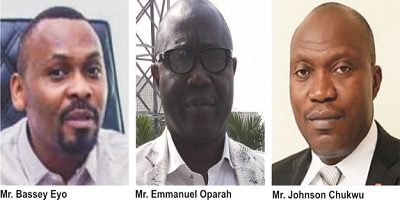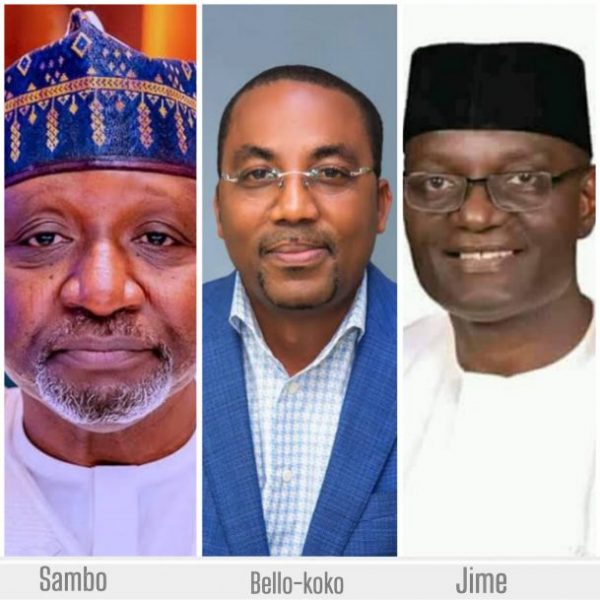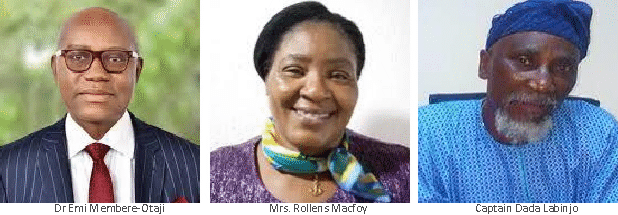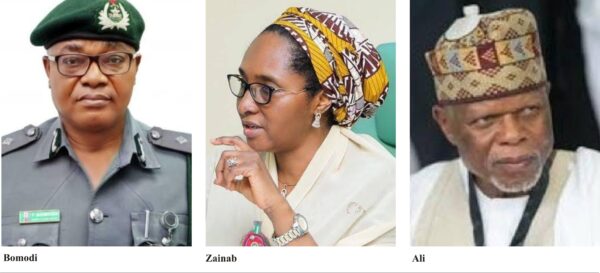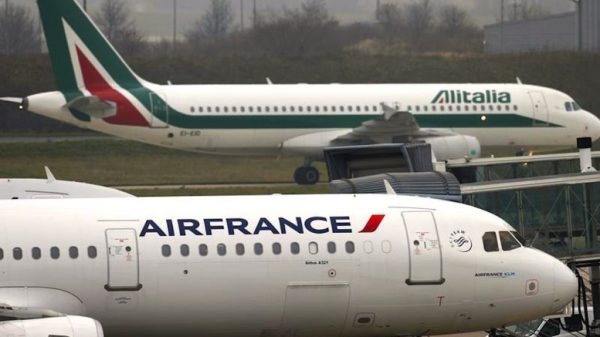Exploring Strategies To Boost FDIs In Nigeria
 By Yusuf Odejobi
By Yusuf Odejobi
The latest report from the United Nations Conference on Trade and Development (UNCTAD) shows a continuous sharp decline in Global Foreign Direct Investment (FDI) into Africa’s largest economy due to global coronavirus restriction.
This is coming despite the federal government’s continuous efforts to diversify its economy away from oil and boost other sectors of the economy.
According to the report, FDI inflows to Sub-Saharan Africa decreased by 11% to an estimated $28 billion. Inflows to Nigeria decline by$2.6 billion from $3.3 billion in 2019. Lower crude oil prices, coupled with the closure of oil development sites at the start of a pandemic due to movement restrictions, weighed heavily on FDI to Nigeria.
“FDI flows to Africa declined by 18% to an estimated $38billion, from $46 billion in 2019. Greenfield project announcements, an indication of future FDI trends, fell 63% to $28 billion, from $77 billion in 2019. The pandemic’s negative impact on FDI was amplified by low prices of and low demand for commodities.”
“Egypt remained the top recipient of FDI in Africa despite a significant decline in inflow (-39%) to an estimated $5.5 billion.”
According to the report Global FDI flows fell by as much as 42% in 2020 to an estimated $859 billion, from about $1.5 trillion in 2019 with most decline concentrated in developed countries. China, India, Sweden, Israel,Japan, Spain, Senegal are few countries who saw an increase in their FDI in 2020.
The body projected further weakness as risk related to the second wave of pandemic, pace of roll-out of vaccination programmes and economic support packages, fragile macroeconomic situations in major emerging markets,and uncertainty about the global policy environment for investments will all continue to affect FDI in 2021.
Speaking with MMSPlus newspaper about this report, the Coordinator, Transport and Logistics Group, Nigeria Economic Summit Group (NESG), Dr. Ikenna Nwosu called on the Nigerian Government to partner with all relevant stakeholders to come out with a long term strategy to increase the inflow of foreign investment and also promote AfCFTA.
“The Nigerian government ought to come out with a strategy to be driven by the Federal Ministry of Industry Trade and Investment and the Nigerian Investment Promotion Commission because they are responsible for investment Promotion in the country also Nigerian Export Promotion Council has a role to play because if there is foreign investment you’ll manufacture and you’ll export.
“A lot of effort has to be made in promoting the African Continental Free Trade Area (AfCFTA) which came into effect on January 1st 202.Because by allowing free movement of goods, services, persons and capital it will encourage and makes it easier to move capital within the continent for investment. Nigeria is the largest market with most diverse opportunity for investment so Nigeria needs to promote that free trade area initiative to pull in more investment
“Also the federal agencies, the Ministry and NNPC have to work closely with the Nigeria Governors Forum so that investment promotion is also done at the sub national levels and not only the national levels.”
He added that the Federal Government also need to increase the palliatives being given to the private sectors to cushion the impact of both the recession and the covid-19 pandemic because doing this will make the private sectors firm and attractive to foreign investors.
On the issue of continuous increase in debt servicing, the economic expert stressed that this continuous trend will lead to international rating agencies to rate Nigeria poor. The rating will keep dropping and will impact on the country’s ability to attract the highest level of investors.
“Our inflation to GDP to debt service ratio will not be optimal and the question will be asked as to the resilience of Nigeria’s economy to handle the overload of debts and service it. The United Nations Economic Commission for Africa has seriously warmed against this and has asked for a one year moratorium by creditors for all debts.
“So, even if Nigeria gets that one year moratorium it is better that we use that one year moratorium to restructure our debts and our debts servicing strategy so that we can quickly exit some of the loan agreements we have and get back to profitability as a Nation.” he added.
Also speaking, the Chairman, Ports Consultative Council(PCC), Otunba Kunle Folarin attributed the decline of FDI into the country to the dwindling global economy as Nigeria is an import dependent economy whose international trade was grossly affected by the pandemic in 2020.
Otunba highlighted four pillars that must be in place to attract foreign investors which are infrastructural capacity, political stability, political economy and fiscal policy. He added that these parameters must be sustainable and be a constant factor and not be a variable which can change.
He further stated that FDIs can only be sustained if there is a continuous investment in inland demands like manufacturing, commercial trade, social structure, financing establishment, growth, enterprise, manufacturing and other flows that come from unilateral and bilateral investments.
Otunba stressed that although the pandemic slowed down the economy globally but the weaknesses in the social structure and fiscal policy of governments all over the world were heightened by the pandemic.
“The key weakness is sustainability. We have to look at the growth from being a constant factor and not a variable factor. So if the foreign investor does not see a constant factor and see our variable it’ll be very slow to make investment. So we must change those narratives and make our policy to be constant and sustainable. Another solution is to grow the internal revenue via manufacturing and also the need to reform the monetary policy.”
Meanwhile, as part of efforts to create an enabling environment that supports indigenous and foreign private sector investment in transport infrastructure, a leading economist, Professor Pat Utomi, admonished Federal and State Governments to jettison political interference in contracts and concessioned projects.
Speaking with MMSPlus, Utomi stressed that this practice of frivolous interruption of legitimate infrastructure concession agreements and contracts have scared Nigerian private sector investors as well as foreign direct investments, while the nation suffers the consequence of dilapidated transport infrastructure.
“People don’t go to a country where property rights are threatened. In Nigeria, Governors are revoking C-of-Os that were approved by their predecessors. We are talking of properties that people have invested billions of Naira to build revoked due to political considerations. People don’t come to countries like that,” Utomi said.
Utomi, who is also the Founder, Centre for Values in Leadership (CVL), lamented that the lack of efficient transport infrastructure has seen Nigeria lose relevance to smaller African countries and other nations outside the continent.
Noting the strategic role of logistics in economic development, Prof. Utomi said, “China’s dramatic rise is down to the fact that they were able to turn around their logistics sector.
“Africa will not make the progress that it is destined to make, unless Nigeria leads the flying geese. What transformed the South East Asia economy? One country, Singapore began to get it right, and others looked across the border and joined in the development stride. Before you know it,Malaysia, Thailand and others had their economies transformed.”




